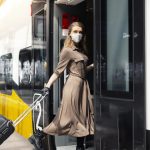The latest projections estimate that nearly 300,000 Americans will die from COVID-19 by the end of 2020. Many of those individuals will be employed when they contract the virus, and a significant number will be workers in front line businesses such as retail, manufacturing, or healthcare, where the risk of exposure is significant. Faced with the tragic loss of a loved one during unprecedented economic turmoil, many of these workers’ families will understandably choose to file wrongful death claims seeking to recover for their loss.
There has been talk of national legislation to provide liability protection for employers, but that has failed to materialize and looks increasingly unlikely. Instead, most employers will find their best defense to be their states’ workers’ compensation laws which generally limit employee lawsuits and require employees to follow an administrative process that imposes statutory limits on damages. These same workers’ compensation laws, however, often have an “out” for certain extreme cases where employees can prove they were injured because the employer acted with a high degree of culpability, typically ranging from gross negligence to intentional harm.
Wrongful death lawsuits therefore will have two seemingly high hurdles to clear before an employer could be subjected to the nightmare scenario; a trial by jury where millions of dollars in punitive damages could be at stake. Those hurdles are (1) proving COVID-19 was contracted in the course and scope of employment; and (2) proving the employer acted with the required level of intent to circumvent the exclusive remedy of workers’ compensation.
Did the Employee Catch the Virus at Work?
This question may seem to be an impossible one to answer. After all, an employee could be exposed to COVID-19 anywhere at any time. It is impossible to know with any certainty how an employee contracted an invisible virus. That said, it is not yet clear how judges and juries will decide these issues. Many states have already instituted presumptions that certain front line workers contracted COVID-19 in the workplace for purposes of workers’ compensation coverage. It is not yet clear how these presumptions will be applied in wrongful death lawsuits, if at all.
More importantly, employers are faced with a dilemma on the question of causation because they have an affirmative obligation under the OSHA Act, and some state laws, to make an independent determination of whether an employee’s illness is work-related for reporting purposes. An employer who reports an illness as work-related, perhaps because of a cluster of coworker cases, is conceding causation, potentially early in the employee’s illness without knowing the extent or risk of a lawsuit. Similarly, an employer that fails to record an employee COVID-19 infection as work-related will no doubt find its investigation highly scrutinized and picked apart if there is subsequent litigation.
Can the Employee Prove The Employer Acted With Intent?
Each state has its own legal standard for allowing employee wrongful death lawsuits against an employer. Most states require an injured employee to prove the injury or illness was caused by an intentional act of the employer. But, some states have a lower standard for liability. For example, Texas allows such suits in the event of a fatality where the employer is proven liable only for gross negligence. California allows a suit where an employer fraudulently conceals the injury and its connection with employment. Cases in California involving harmful exposure to asbestos and other pathogens could easily be analogized to COVID-19.
No doubt, the threshold for establishing gross negligence or intentional wrongdoing is a high one, but applying the benefit of hindsight to the actions of many employers during the pandemic will leave a lot of room for second-guessing. The world has changed so quickly that decisions made early in the year may not stand up with the benefit of the information gained later in the pandemic. In addition, the political nature of the pandemic has spilled over into many workplaces, creating dangerous opportunities for supervisors or managers to make comments that are taken out of context and used against the employer.
Steps Employers Can Take To Prepare
Employers should assume that every decision and document related to protecting employees from COVID-19 will be scrutinized at some point in the future during litigation. Whether it is an OSHA complaint, whistleblower claim, or wrongful death lawsuit, the employer may need to demonstrate its good faith efforts to comply with the law and protect employee health. The events of this year have moved so quickly that employers may have trouble rebuilding the timeline of events and recreating all of the important steps that were taken. Consider creating a COVID-19 officer who creates a file of materials, including photographs and important policies and employee communications to have readily available.
Take the duty under OSHA to investigate the origins of an employee COVID-19 case seriously and document the process. Prepare a short memo to the file for every case outlining why the employer is or is not logging the case as a work-related lost-time illness.
Train managers on company policies and the importance of enforcing those policies consistently. You would not allow managers to be lax due to “contrary opinions” on the importance of hard hats or fall protection, and the same discipline must be brought to bear on safety rules involving COVID-19 such as masks and other PPE.
Lastly, if an employee dies it is a tragedy that should be recognized by the company. A caring and sympathetic response from coworkers sends the message that the employee mattered, and will be missed. Although it is obviously important to avoid communications regarding the source of the illness, expressions of condolences and support are not only appropriate but the right and human thing to do.




Leave a Reply